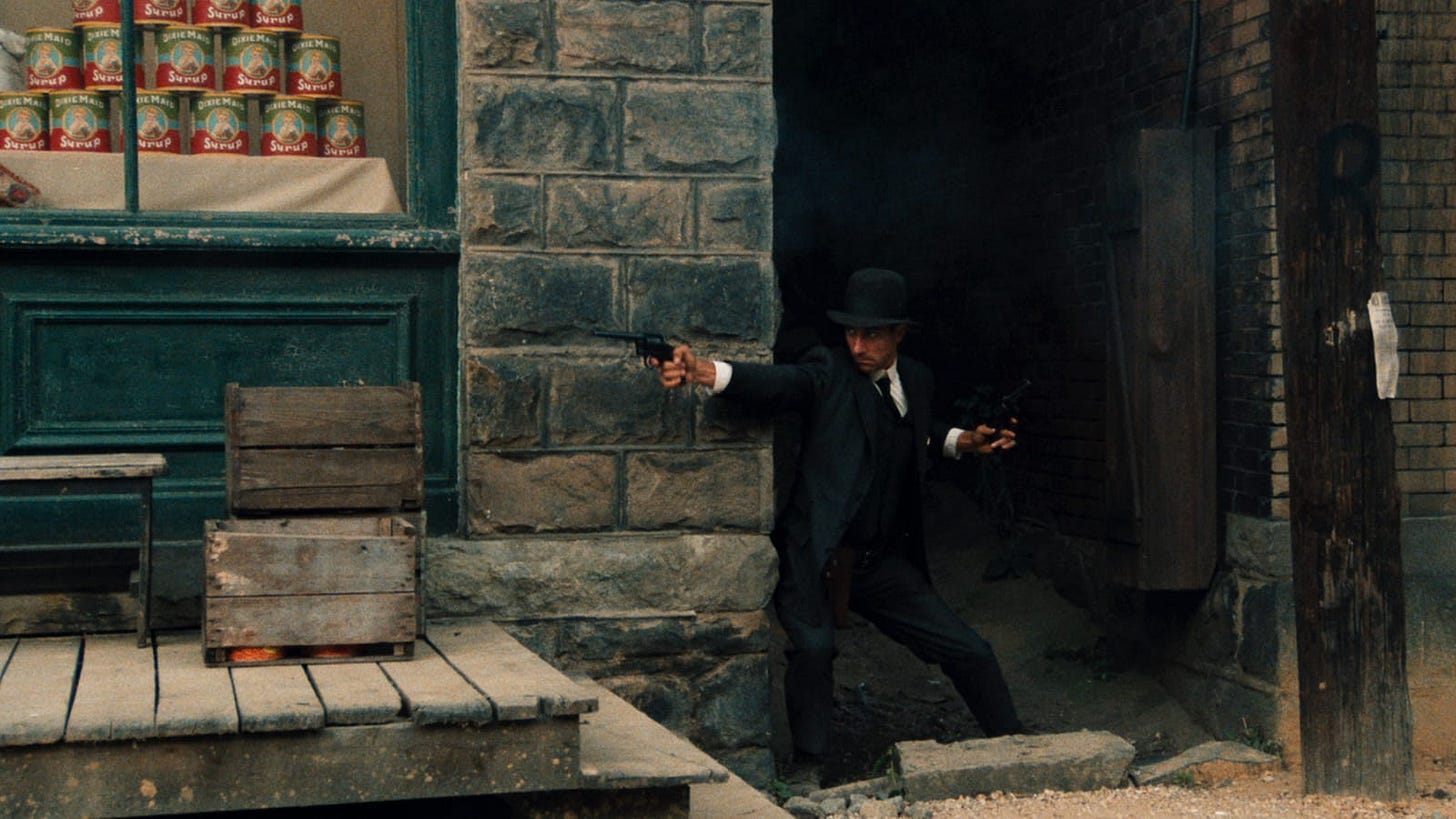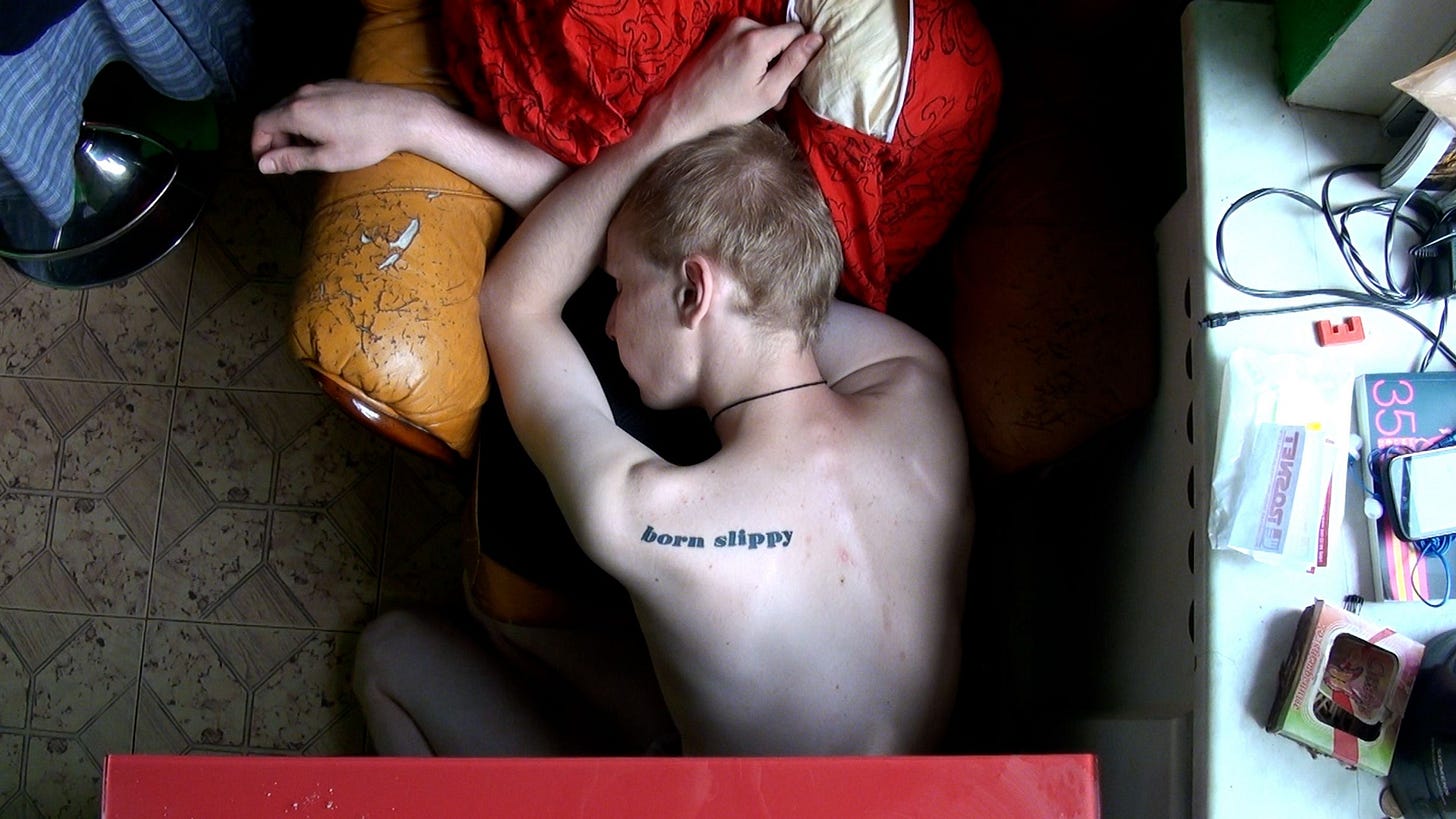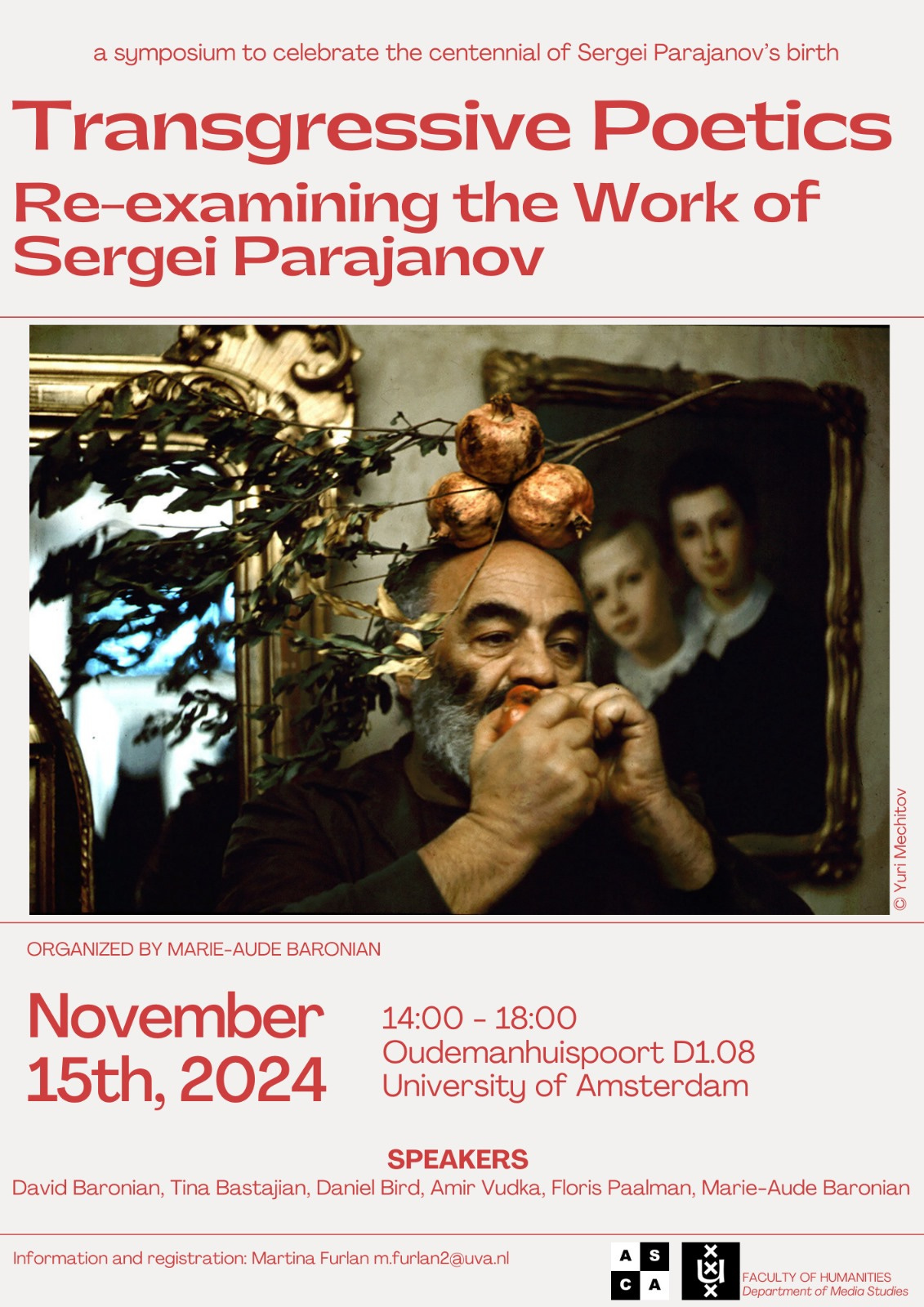This month in Film Club: Dreamy and sacred lesbian utopias, a battle for worker’s rights within the Neo-Western, an intimate chronicle of a turbulent young relationship, and The Odyssey in its most homoerotic form.
Thursday November 7, 17:00 @ Universiteitstheater (Nieuwe Doelenstraat)
The Queer Ephemera of Barbara Hammer
Barbara Hammer - with introductions by Parker Burrows (short films, 1968-1976) and Mel Ketelaars (Nitrate Kisses, 1992)
A selection of Barbara Hammer’s short films and the feature film Nitrate Kisses.
Known as a trailblazer of experimental queer cinema, Barbara Hammer’s films focus on representing both the ephemera and the undeniable concreteness of what it means to be queer. Her early films, such as Dyketactics (where a party of lesbians frolic naked in a park) and Superdyke (where a lesbian army takes over the streets of San Francisco) use the confines of the film frame to create small but impenetrable safe spaces where queer sexuality can blossom in spite of a hostile, heteronormative culture. In other shorts, Contribution to Light and Multiple Orgasm, Hammer uses crossfades and dreamy cinematography to mix images of nature with images of bodies, always showing the inarguable place of queerness within the order of the natural world. These early shorts along with her masterpiece Women I Love, build up to her first feature film Nitrate Kisses, an essayistic documentary that explores the erasure of queer images in mainstream culture and unapologetically represents queerness as an ever-evolving, inextinguishable source of power.
The program will be:
- Contribution to Light (1968)
- Dyketactics (1974)
- Superdyke (1975)
- Multiple Orgasm (1976)
- Women I Love (1976)
- Nitrate Kisses (1992)
Thursday November 14, 17:00 @ Universiteitstheater (Nieuwe Doelenstraat)
UVA FILM CLUB x ROSA: Matewan
John Sayles, 1987- with an introduction by ROSA
In collaboration with Radical Organization of Students Amsterdam (ROSA):
ROSA is a marxist student activist organization with members from universities across Amsterdam. Our focus is building the base for class struggle within student circles through protest, educational events, fundraisers, and other community-building activities.
Released in 1987 after nearly a decade of brutal retaliation to growing union power in the 1970s by the Reagan and Thatcher governments, Matewan looks to early 20th Century US labour history for both inspirational and cautionary lessons about organising. John Sayles shot the film as an alternative Western, harnessing and subverting tropes from American cinema’s most individualistic genre to tell a story of collective life and power in an Appalachian coal mining community. Based on true events, Matewan is an accessible exploration of solidarity and radical organisation, from internal struggles like racism and sexism, to external violence from the capitalist alliance of mining company and state.
Though the film was a commercial flop on release, it gained enough critical acclaim to warrant a Criterion edition in 2019. Whatever its box office take in 1987, Matewan appears now as a forgotten classic, with an incredible cast of recognisable character actors like Chris Cooper, James Earl Jones, and David Strathairn. It raises questions about the need for, and desperate lack of, mainstream pro-union cinema (across the West but especially in the United States) Every year the need for such art grows. As Dutch workers push for strikes across higher education, against genocide and the slashing of university budgets, films like Matewan are vital tools for mass education, inspiration, and mobilisation.
Thursday November 21, 17:00 @ Buzzhouse (OMHP)
How to Save a Dead Friend
Marusya Syroechkovskaya, 2022- with an introduction by Michał Bilski
“How to Save a Dead Friend” (2022) is an intimate and haunting documentary that captures the fragility of youth, love, and survival in the face of despair. Filmmaker Marusya Syroechkovskaya takes us through her own life as a suicidal teenager, holding onto the belief that 2015 might be her last year alive. She illustrates a deep connection with her boyfriend, Kimi Morev - a troubled kindred spirit whose presence becomes both a source of comfort and heartbreak. “He had scars on his wrists and knew every Joy Division song by heart,” she recalls. While their love offers her glimmers of hope, Kimi battles drug abuse and depression. In the end, it is a narrative about Russian youth and an unflinching look at love, loss, and the possibility of survival.
SPECIAL EVENT: UVA FILM CLUB x AVILA
Thursday November 28, 17:00 @ Universiteitstheater (Nieuwe Doelenstraat)
Pink Ulysses
Erik de Kuyper, 1990 - more information about this event soon!
In collaboration with Avila:
Avila is a Brussels-based non-profit organisation which distributes Belgian auteur cinema in theaters and online. Founded by filmmakers, the platform offers both contemporary and classical, experimental, documentary, and fiction films. The catalogue is a carefully curated selection of films that resonate aesthetically and socially, and contribute to (film) history. Its range consists mainly of films with a unique worldview by directors with a bold cinematic signature who resolutely approach cinema as an art form.
Belgium produces many exceptional and valuable films that often fail to fully reach their intended audience. Avila seeks to bridge the gap between a film and its public and contributes to a sustainable Belgian film culture on several levels. As a distributor, Avila brings unreleased films to the big screen with care and organises contextualised screenings in Belgium. After their release, the films are published on the streaming platform where they are accessible worldwide alongside 100 other titles.
Homer tells us how Ulysses’ wife Penelope used to weave Laertes’ shroud. The work she did by day she unravelled by night. That process was not dissimilar to the creation and production of Pink Ulysses. Gradually images (collected here and there, also from film classics) and well and lesser known music created a texture of sight and sound, resulting in a variation on Ulysses. Perhaps Penelope began to love her son more than her distant, absent husband? And possibly Ulysses began to love the “ideal Penelope” he recognized in magical Circe more than his wife, who would be waiting for him in Ithaca? Perhaps… and the imagination lingers on… How this materializes in a film, a fabric, is Pink Ulysses’ secret. An exploration, an adventurous wandering.’
And if you’re looking for more…
November 15, 14:00 @ OMHP D1.08
Transgressive Poetics: Re-examining the Work of Sergei Parajanov
Organized by Marie-Aude Baronian
Speakers:
David Baronian, Tina Bastajian, Daniel Bird, Floris Paalman, Amir Vudka, Marie-Aude Baronian
Georgian-Armenian-Ukrainian filmmaker and artist Sergei Parajanov (1924-1990) left a singular, enigmatic and unclassifiable body of work, mainly produced in the sixties and in the eighties in the Soviet context. Known for his poetic cinema, his idiosyncratic approach to art and for his creative adaptation of the literary and material cultures of the Caucasus, he has not only invented a new language of cinema but also a transgressive poetics and aesthetics that resists easy national and style classification.
As the year 2024 closes out the centennial celebration of his birth, this conference stresses the audiovisual and artistic intersections of Transcaucasian cultures in the current troubled context of these regions, taking the opportunity to explore the multiple directions, discussions and inspirations that draw from Parajanov’s work in the present day. This one-day conference thereby re-examines the multifaceted world of Parajanov by addressing a wide range of diferent topics and questions such as filmic sound, the mystical, material objects and fashion, archiving and preserving films, and the ways these works are presented and circulated in film festivals.







